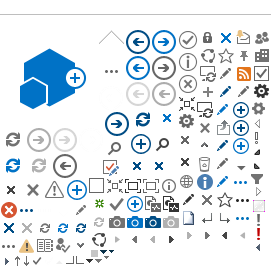Daniel Schwen Staff Scientist Research Areas:
Mesoscale modeling and simulation Biography:
Daniel Schwen is a staff scientist in the Fuel Modeling and Simulation Department. His work centers on computational materials science with a focus on fission gas release modeling. He earned a Ph.D in Physics from the University of Göttingen, German in 2007. Daniel is a member of the Materials Research Society of North America as well as a member of the German Physical Society. He is the lead developer of the mesoscale NEAMS-funded MARMOT tool, the MyTRIM binary collision Monte Carlo code, and the MARMOT-MyTRIM coupling application Magpie. He has implemented core multiphase modeling and mechanics coupling functionality into MARMOT and designed novel rapid model development capabilities. His expertise is in the area of multiscale modeling, with a focus on using mesoscale modeling and simulation tools to bridge from the atomistic to the macroscale. Dr. Schwen has experience in modelling materials under irradiation and thermodynamic modeling. Additionally, he is interested in geospatial data processing (algorithms and data structures) and contributes as a volunteer to Wikipedia and Wikimedia projects. Education: Ph.D., Physics - Georg-August Universität, Göttingen, Germany M.S., Physics - Georg-August Universität, Göttingen, Germany Affiliations: Materials Research Society of North America Minerals, Metals, and Materials Society (TMS) Publications: Rapid multiphase-field model development using a modular free energy based approach with automatic differentiation in MOOSE/MARMOT, D. Schwen, L. Aagesen, J.W. Peterson, et al., Comp. Mat. Sci. 132 (2017) 36-45
The capillarity equation at the nanoscale: Gas bubbles in metals, A. Caro, D. Schwen, J. Hetherly, et al., Acta Mater. 89 (2015) 14-21
Helium segregation to screw and edge dislocations in α-iron and their yield strength, E. Martinez D. Schwen, A. Caro, Acta Mater. 84 (2015) 208-214
On the analytic calculation of critical size for alpha prime precipitation in FeCr, D. Schwen, E. Martinez, A. Caro, J. Nucl. Mater. 439 (2013) 180
Nano-hillock formation in diamond-like carbon induced by swift heavy projectiles in the electronic stopping regime: Experiments and atomistic simulations, D. Schwen, E. Bringa, J. Krauser, A. Weidinger, C. Trautmann, H. Hofsäss, Apl. Phys. Letter 101 (2012) 113115.
Microstructural stability of nanostructured Cu alloys during high-temperature irradiation, N.Q. Vo, S.W. Chee, D. Schwen, et al., Scripta Mater. 63 (2010) 929.
Intragranular Xe bubble population evolution in UO2: A first passage Monte Carlo simulation approach, D. Schwen, R.S. Averback, J. Nucl. Mater. 402 (2010) 116.
Molecular dynamic simulation of fission fragment induced thermal spikes in UO2: Sputtering and bubble re-solution, M. Huang, D. Schwen, R.S. Averback, J. Nucl. Mater. 399 (2010) 175-180.
Molecular dynamics simulation of intragranular Xe bubble re-solution in UO2, D. Schwen, M. Huang, P. Bellon, R.S. Averback, J. Nucl. Mater. 392 (2009) 35.
Atomistic simulations of swift ion tracks in diamond and graphite, D. Schwen and E. Bringa, Nucl. Instrum. Methods Phys. Res., Sect. B 256 (2007) 187.
Presentations: TMS 2017, Coupling Radiation Damage from Binary Collision Monte Carlo to Phase Field Microstructure Evolution, D. Schwen, S. Schunert
Materials Science & Technology 2015, Rapid development of phase field models for RPV aging, D. Schwen, Yongfeng Zhang
CAES Materials, Modeling, Simulation, and Visualization workshop, Rapid Phase Field Model Development using the MOOSE Finite Element Framework, D. Schwen
University of Michigan, Driven Systems in Materials Science, D. Schwen, M. Wang, M. Huang, N. Vo, P. Bellon, R.S. Averback
2010 MRS Fall Meeting, Boston, Mechanical Mixing and Self-organization in Alloys Subjected to Severe Plastic Deformation, N. Vo, M. Wang, Y. Ashkenazy, M. Pouryazdan, H. Hahn, R.S. Averback, P. Bellon, D. Schwen
|
|

